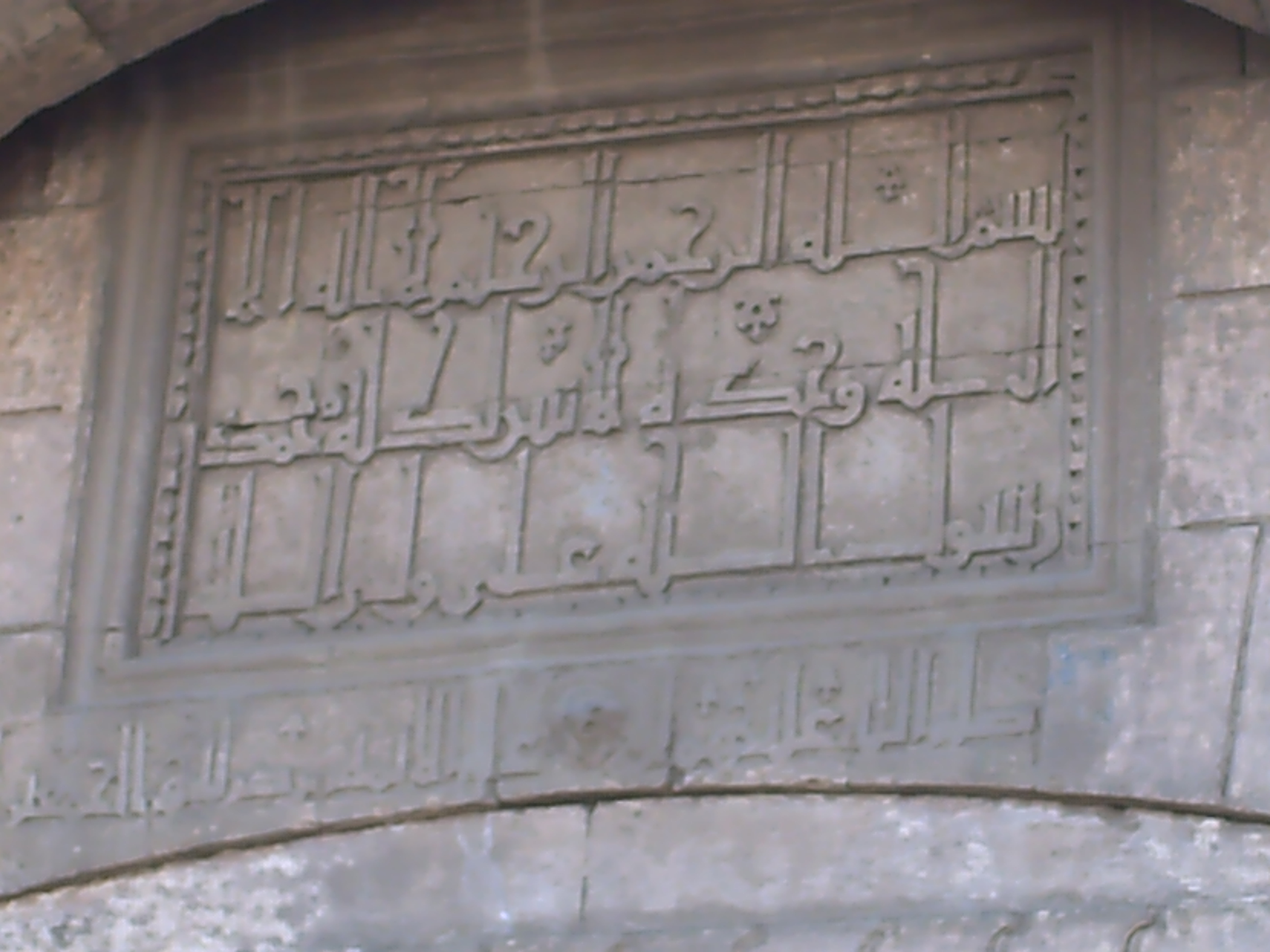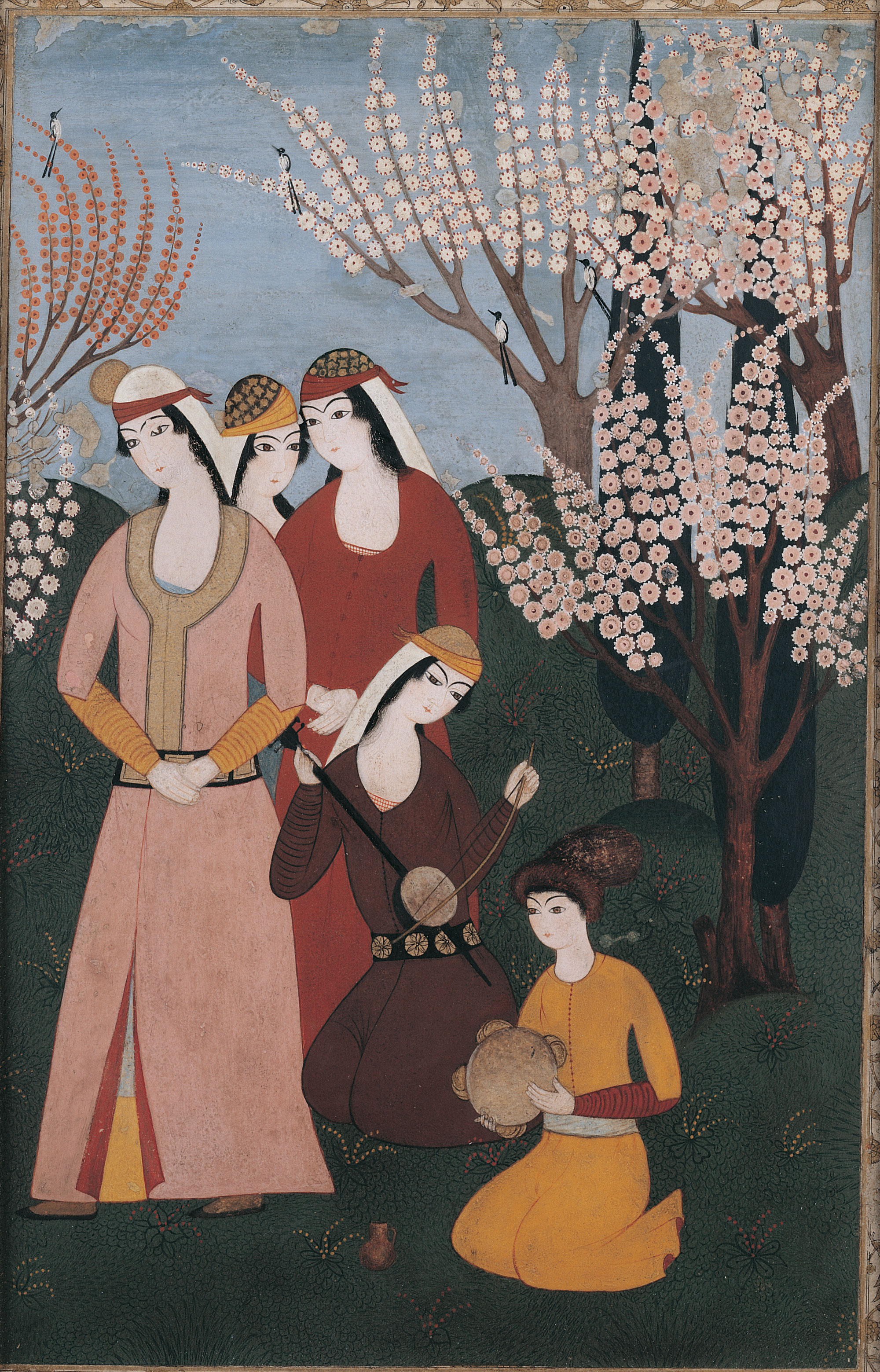|
Field Hollers
The field holler or field call is mostly a historical type of vocal work song sung by field slaves in the United States (and later by African American forced laborers accused of violating vagrancy laws) to accompany their tasked work, to communicate usefully, or to vent feelings. It differs from the collective work song in that it was sung solo, though early observers noted that a holler, or ‘cry’, might be echoed by other workers. Though commonly associated with cotton cultivation, the field holler was also sung by levee workers, and field hands in rice and sugar plantations. Field hollers are also known as corn-field hollers, water calls, and whoops. An early description is from 1853 and the first recordings are from the 1930s. The holler is closely related to the call and response of work songs and arhoolies. The Afro-American music form ultimately influenced strands of African American music, such as the blues and thereby rhythm and blues, as well as negro spirituals. ... [...More Info...] [...Related Items...] OR: [Wikipedia] [Google] [Baidu] |
Alan Lomax, Convicts Singing In Woodyard, Reed Camp, South Carolina, 1934
Alan may refer to: People *Alan (surname), an English and Turkish surname *Alan (given name), an English given name **List of people with given name Alan ''Following are people commonly referred to solely by "Alan" or by a homonymous name.'' *Alan (Chinese singer) (born 1987), female Chinese singer of Tibetan ethnicity, active in both China and Japan *Alan (Mexican singer) (born 1973), Mexican singer and actor * Alan (wrestler) (born 1975), a.k.a. Gato Eveready, who wrestles in Asistencia Asesoría y Administración *Alan (footballer, born 1979) (Alan Osório da Costa Silva), Brazilian footballer *Alan (footballer, born 1998) (Alan Cardoso de Andrade), Brazilian footballer *Alan I, King of Brittany (died 907), "the Great" *Alan II, Duke of Brittany (c. 900–952) *Alan III, Duke of Brittany(997–1040) *Alan IV, Duke of Brittany (c. 1063–1119), a.k.a. Alan Fergant ("the Younger" in Breton language) *Alan of Tewkesbury, 12th century abbott *Alan of Lynn (c. 1348–1423), 15th cen ... [...More Info...] [...Related Items...] OR: [Wikipedia] [Google] [Baidu] |
Frederick Law Olmsted
Frederick Law Olmsted (April 26, 1822August 28, 1903) was an American landscape architect, journalist, social critic, and public administrator. He is considered to be the father of landscape architecture in the USA. Olmsted was famous for co-designing many well-known urban parks with his partner Calvert Vaux. Olmsted and Vaux's first project was Central Park, which led to many other urban park designs, including Prospect Park in what was then the City of Brooklyn (now the Borough of Brooklyn in New York City) and Cadwalader Park in Trenton, New Jersey. He headed the preeminent landscape architecture and planning consultancy of late nineteenth-century America, which was carried on and expanded by his sons, Frederick Jr. and John C., under the name Olmsted Brothers. Other projects that Olmsted was involved in include the country's first and oldest coordinated system of public parks and parkways in Buffalo, New York; the country's oldest state park, the Niagara Reservation in Ni ... [...More Info...] [...Related Items...] OR: [Wikipedia] [Google] [Baidu] |
Abyssinian People
am, ሐበሻ, አበሻ, translit=Häbäša, 'äbäša ti, ሓበሻ, translit=Ḥabäša , regions = , languages = Ethiopian Semitic languages , religions = Predominantly Oriental Orthodox Christianity (Orthodox Tewahedo churches); also Islam, Protestant Christianity (P'ent'ay) and Judaism (Beta Israel) Habesha peoples ( gez, ሐበሠተ, translit=Ḥäbäśät or Ḥabäśät ; am, ሐበሻ, አበሻ, translit=Häbäša, 'äbäša; ti, ሓበሻ, translit=Ḥabäša; etymologically related to English "Abyssinia" and "Abyssinians" by way of Latin) is an ethnic or pan-ethnic identifier that has been historically employed to refer to Semitic language-speaking and predominantly Orthodox Christian peoples found in the highlands of Ethiopia and Eritrea between Asmara and Addis Ababa (i.e. the modern-day Amhara, Tigrayan, Tigrinya peoples) and this usage remains common today. The term is also used in varying degrees of inclusion and exclusion of o ... [...More Info...] [...Related Items...] OR: [Wikipedia] [Google] [Baidu] |
Adhan
Adhan ( ar, أَذَان ; also variously transliterated as athan, adhane (in French), azan/azaan (in South Asia), adzan (in Southeast Asia), and ezan (in Turkish), among other languages) is the Islamic call to public prayer (salah) in a mosque recited by a muezzin at prescribed times of the day. Adhan is recited very loudly from the mosque five times a day on most days and all day long during the religious holidays of Eid al-Fitr and Eid al-Adha, traditionally from the minaret. It is the first call summoning Muslims to enter the mosque for obligatory (''fard'') prayer (''salah''). A second call, known as the ''iqamah'', summons those within the mosque to line up for the beginning of the prayers. Only in Turkey, Ezan is voiced in five different styles at different times; saba, uşşak, hicaz, rast, segah. Terminology Adhān, Arabic for "announcement", from root ''ʾadhina'' meaning "to listen, to hear, be informed about", is variously transliterated in different cultures ... [...More Info...] [...Related Items...] OR: [Wikipedia] [Google] [Baidu] |
San Francisco Chronicle
The ''San Francisco Chronicle'' is a newspaper serving primarily the San Francisco Bay Area of Northern California. It was founded in 1865 as ''The Daily Dramatic Chronicle'' by teenage brothers Charles de Young and M. H. de Young, Michael H. de Young. The paper is owned by the Hearst Corporation, which bought it from the de Young family in 2000. It is the only major daily paper covering the city and county of San Francisco. The paper benefited from the growth of San Francisco and had the largest newspaper circulation on the West Coast of the United States by 1880. Like other newspapers, it experienced a rapid fall in circulation in the early 21st century and was ranked 18th nationally by circulation in the first quarter of 2021. In 1994, the newspaper launched the SFGATE website, with a soft launch in March and official launch November 3, 1994, including both content from the newspaper and other sources. "The Gate" as it was known at launch was the first large market newspaper ... [...More Info...] [...Related Items...] OR: [Wikipedia] [Google] [Baidu] |
SFGate
The ''San Francisco Chronicle'' is a newspaper serving primarily the San Francisco Bay Area of Northern California. It was founded in 1865 as ''The Daily Dramatic Chronicle'' by teenage brothers Charles de Young and Michael H. de Young. The paper is owned by the Hearst Corporation, which bought it from the de Young family in 2000. It is the only major daily paper covering the city and county of San Francisco. The paper benefited from the growth of San Francisco and had the largest newspaper circulation on the West Coast of the United States by 1880. Like other newspapers, it experienced a rapid fall in circulation in the early 21st century and was ranked 18th nationally by circulation in the first quarter of 2021. In 1994, the newspaper launched the SFGATE website, with a soft launch in March and official launch November 3, 1994, including both content from the newspaper and other sources. "The Gate" as it was known at launch was the first large market newspaper website in t ... [...More Info...] [...Related Items...] OR: [Wikipedia] [Google] [Baidu] |
Islamic Music
Islamic music may refer to religious music, as performed in Islamic public services or private devotions, or more generally to musical traditions of the Muslim world. The heartland of Islam is the Middle East, North Africa, the Horn of Africa, West Africa, Iran, Central Asia, and South Asia. Due to Islam being a multi-ethnic religion, the musical expression of its adherents is vastly diverse. Indigenous traditions of various part have influenced the musical styles popular among Muslims today. The word "music" in Arabic, the language of Islam, (''mūsīqā'' ) is defined more narrowly than in English or some other languages, and "its concept" was at least originally "reserved for secular art music; separate names and concepts belonged to folk songs and to religious chants".) At least one scholar (Jacob M. Landau) makes the generalization about Islamic music that it "is characterized by a highly subtle organization of melody and rhythm", that "the vocal component predominates over ... [...More Info...] [...Related Items...] OR: [Wikipedia] [Google] [Baidu] |
Gerhard Kubik
Gerhard Kubik (born 10 December 1934) is an Austrian music ethnologist from Vienna. He studied ethnology, musicology and African languages at the University of Vienna. He published his doctoral dissertation in 1971 and achieved habilitation in 1980. Biography Kubik has been carrying out research in Africa for every year since 1958. Since then, he has published over 300 articles and books on Africa and African-Americans, based on his field work in fifteen African countries, in Venezuela and Brazil. Kubik's topics are music and dance, oral traditions and traditional systems of education, the extension of African culture to the Americas (especially Brazil) and the linguistics of the Bantu languages of central Africa. Moreover, Kubik has compiled the largest collection of African traditional music worldwide, with over 25,000 recordings, mostly archived at the Phonogrammarchiv Wien in Vienna. Kubik also performs as a clarinettist with a neo-traditional kwela Jazz Band from Malawi th ... [...More Info...] [...Related Items...] OR: [Wikipedia] [Google] [Baidu] |
Ethnomusicologist
Ethnomusicology is the study of music from the cultural and social aspects of the people who make it. It encompasses distinct theoretical and methodical approaches that emphasize cultural, social, material, cognitive, biological, and other dimensions or contexts of musical behavior, in addition to the sound component. Within musical ethnography it is the first-hand personal study of musicking as known as the act of taking part in a musical performance. Folklore studies, Folklorists, who began preserving and studying folklore music in Europe and the US in the 19th century, are considered the precursors of the field prior to the World War II, Second World War. The term ''ethnomusicology'' is said to have been coined by Jaap Kunst from the Greek language, Greek words ἔθνος (''ethnos'', "nation") and μουσική (''mousike'', "music"), It is often defined as the anthropology or ethnography of music, or as musical anthropology.Seeger, Anthony. 1983. ''Why Suyá Sing''. Lon ... [...More Info...] [...Related Items...] OR: [Wikipedia] [Google] [Baidu] |
Sylviane Diouf
Sylviane Anna Diouf is a historian and curator of the African diaspora. She is a visiting scholar at the Center for the Study of Slavery and Justice, Brown University and a member of the Scientific Committee of the International Coalition of Sites of Conscience. Her contribution as a social historian, she stressed, "may be the uncovering of essential stories and topics that were overlooked or negated, but which actually offer new insights into the experience of the African Diaspora. A scholar said my work re-shapes and re-directs our understanding of this history; it shifts our attention, corrects the historical record, and reveals hidden and forgotten voices." Early life and education Diouf was born in France, the daughter of a Senegalese physicist and a French school principal. She is a descendant of Khaly Amar Fall (1555-1638) founder, in 1603, of Pir, the Senegalese institute of higher Islamic studies. Historical figures such as Sulayman Bal and Abdel Kader Kane who blocked t ... [...More Info...] [...Related Items...] OR: [Wikipedia] [Google] [Baidu] |
Music Of West Africa
The music of West Africa has a significant history, and its varied sounds reflect the wide range of influences from the area's regions and historical periods. Traditional West African music varies due to the regional separation of West Africa, yet it can be distinguished by two distinct categories: Islamic music and indigenous secular music. The widespread influence of Islam on culture in West Africa dates back to at least the 9th century, facilitated by the introduction of camels to trade routes between the North of Africa and West Africa. Islam-influenced West African music commonly includes the use of stringed instruments like the ''goje,'' while more secular traditional West African music incorporates greater use of drums such as the ''djembe.'' Contemporary styles of music in West Africa have been influenced by American music, African jazz and gospel music. The forced migration of Africans to the Americas as a result of the transatlantic slave trade gave rise to ''kaiso'' ... [...More Info...] [...Related Items...] OR: [Wikipedia] [Google] [Baidu] |







